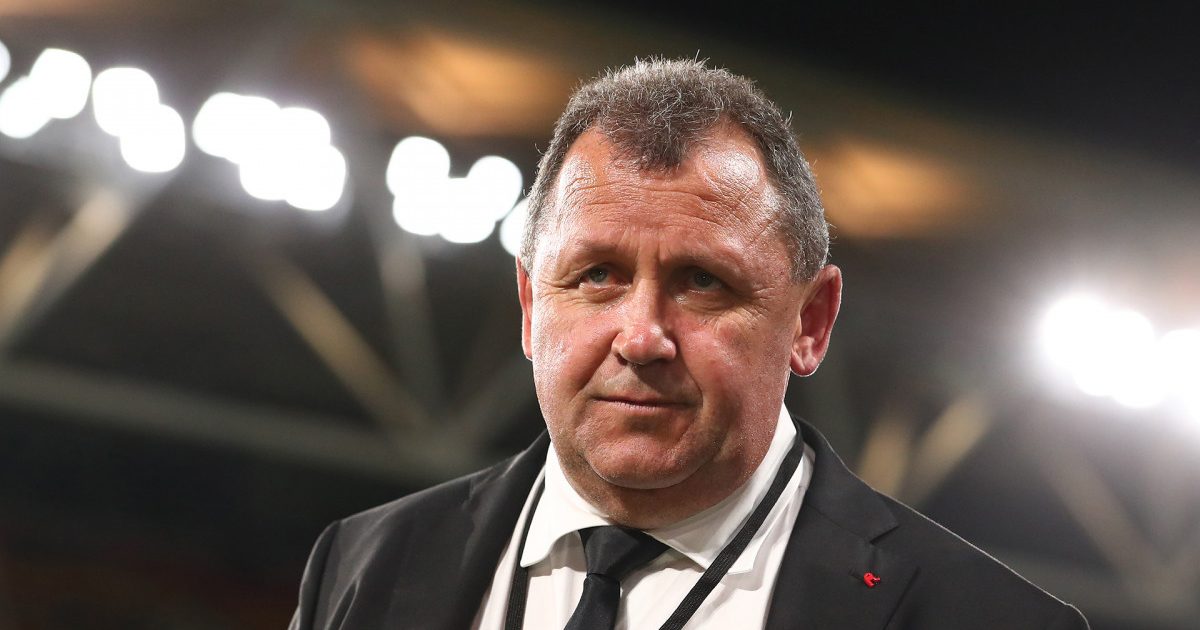'Worst fears realised' - Ian Foster had to win over the fans after his suspect appointment but has failed to do so

Steve Hansen didn’t so much endorse Ian Foster to succeed him as All Blacks coach, as actively campaign on his behalf.
At the time, it seemed an over-reach. Sure Hansen was the supreme ruler of the New Zealand rugby universe, but trying to dictate terms for after he’d gone felt a bit much.
Clever guy, though, Hansen.
The last thing any All Blacks coach wants is to have his deeds completely outstripped by his successor, especially when you’re as competitive as Hansen. No, the smart play is to encourage the brains trust to install a guy who’ll never threaten your legacy.
The process to appoint the new All Blacks coach was unsatisfactory to many. As was the outcome of that process. Now that we’re getting results to match, New Zealand Rugby (NZR) really do have to take some responsibility for foisting Ian Foster upon the rest of us.
The man has won two of his five matches in charge, including losses to comparative minnows Australia and Argentina. With all due respect, neither are among the top handful of teams the rugby world has to offer.
Unfortunately, nor are the All Blacks on this form.
Foster was the steady-as-she-goes option for NZR, assuming they actually considered anyone else for the post. Poor Scott Robertson was conned into entering the race – and creating the illusion of contestability – but it had been clear for years that Foster was going to be given the job.
If it truly were a contest, then blokes such as Joe Schmidt, Jamie Joseph and Dave Rennie might have deigned to be involved. Heck, given the stature of the position, Eddie Jones and Rassie Erasmus ought to have been beating down NZR’s door too.
Ian Foster might be a tremendous coach, but his record is underwhelming and his appointment was not warmly received. People suspected there were better candidates out there and – fairly or unfairly – that meant Foster needed to win fans over.
It’s safe to say he hasn’t achieved that and NZR have to take steps to remedy the situation. For many, the only palatable solution will be the immediate removal of Foster and his staff.
We’ve been lucky in New Zealand. We’ve had head coaches and assistant coaches and specialist coaches who were elite in their field. Men whose intellect meant the All Blacks weren’t just fitter than their opponents and better athletes, but better prepared and more technically and tactically astute than everyone else too.
In our heart of hearts, we believe these All Blacks players are better than those from Argentina and Australia. Probably 20 to 30 points better, if we’re being honest. Sadly, the results and performances no longer support that view.
So if we are being honest, would the All Blacks beat South Africa this Saturday? What about England, France or Ireland? Surely they could at least account for Wales and Scotland?
Steady-as-she-goes has not worked. In fact it’s been a failure.
Will the embarrassed All Blacks come back and beat the Pumas handsomely in Newcastle on November 28? Probably. But the air of invincibility is gone, replaced by the knowledge the All Blacks can be dominated physically and don’t have a Plan B.
If you can tackle the All Blacks, you will beat them. If you don’t, they’ll put 40 points on you.
This team is providing us with no sense that they know how to unlock opposition defences. Yes, they’re lethal when guys fall off tackles or chase kicks in dribs and drabs, but there was precious little of that against the Pumas on Saturday. What we got instead was the ball being shovelled side-to-side and the scrum going backwards on occasion and the lineout breaking down and discipline deteriorating and an overall feeling that the team weren’t prepared for what they encountered and had no idea how to combat it.
This All Blacks team is mouthy and niggly and it’s doing itself few favours with referees. It won’t get the rub of the green the way it’s carrying on and – again – these are all symptoms of a diminishment in the team’s aura and of the overall All Blacks’ brand.
By nature, NZR is a conservative organisation. It’s evolved in various ways with regard to diversity and is said to be a good place to work, where people are treated well and with consideration.
With the All Blacks, though, the attitude has often been if it ain’t broke, don’t fix it.
Well, the All Blacks need fixing and – as risk-averse as NZR are – they have more to lose by maintaining the status quo than changing it.
Foster has a further year to go on his contract and we all know that NZR’s absolute preference would be to extend him through to 2023. They like stability and positivity and for every appointment and decision to go unchallenged.
Sadly, neither the results, nor the mood of the fanbase, support such a stance. The rank and file viewed Foster’s appointment with suspicion and were sceptical that he would succeed.
Their worst fears are being realised and NZR needs to start again. Simple as that.




























